In the fridge section of the supermarket in Waterloo, I am trying to work out what I’ve come to the shops for. We’re out of food – I know that much. I told Robb I’d pick up ingredients to make dinner, but I can’t remember a single recipe.
I lift the light-green muslin wrap off the pram so the baby can extend his legs.
Often, when I look at the baby, I see a collision of features that don’t make any sense. He appears foreign and far away – a face of shapes I can’t decipher. Sometimes, he turns into a dragon. The first time was a shock – a little green dragon lying on the play mat doing tummy time. But’s more frequent now: a little green dragon in highchair, a little green dragon in the pram. Just a flash and then it’s gone.
Today, he’s been a dragon for most of the morning – a quiet, happy dragon, though, engrossed in the discovery of his right big toe. I notice the arches of his feet with a detached sense of pride – they’re high like a dancer’s, high like mine. We’ve been alone until now, in the quiet hours of a midweek morning.
But I’m aware of a young couple, a girl and a boy, walking towards us, their swinging hands clasped together. The girl is in her early twenties and looks down at the baby then up at her boyfriend. She points at him, whispers something, laughs.
‘What are you looking at?’ I snap, staring at her. The girl frowns and looks at the baby. She glances at her boyfriend then back at me. ‘Sorry,’ she says. ‘I just – he looked cold.’
‘Are you a mum?’ I ask. ‘Do you have any idea how hard it is?’
I watch the couple walk away, the boyfriend peering back over his shoulder.
Hands shaking, I call Robb from the canned food aisle. ‘Arns?’ he says. ‘You okay?’
‘I’m in the supermarket,’ I whisper. ‘They were looking at him, this couple. And I just lost it. Shit. I’m so embarrassed. I have to get out of here. I don’t think I can buy dinner. I don’t want to run into them again.’
‘Don’t worry, I’ll get something on the way home,’ Robb says. ‘Why don’t you head back to the house and I’ll come home early?’
‘Okay.’
Head down, I put my empty basket back at the front of the store. ‘I’m sorry,’ I say to Robb over the noise of the traffic. ‘I tried.’
‘I know you did,’ Robb says. ‘I love you.’


***
‘Henry is so cute, Arns,’ my friend Brooke tells me one evening, when she drops by after work. I have stopped letting people come over – I must protect the baby from prying eyes – but I have made an exception for Brooke.
Robb is overseas again. She pushes the pram for me while we walk around the streets of Redfern, lined with scruffy terraces and large council bins. Brooke’s friend has just had a baby and she tells me how ‘funny looking’ he is.
‘It’s weird,’ she says. ‘And this is mean, I know. Both parents are attractive, too. But he looks like a grumpy old man. Henry is super cute, though.’
I look down into the pram, into the mess of features in front of me, and back at her. The baby’s not a dragon today, but he still doesn’t look right somehow.
‘It’s okay,’ I snap at Brooke. ‘You don’t have to lie to me.’
I take the pram from her, trying not to show how angry I am. ‘I know he’s not cute,’ I say. ‘You of all people don’t have to pretend.’
I am so tired of having to pretend when everyone around me is lying. Why am I the only one trying to protect him?
Brooke laughs, then stops and stares at me. ‘Wait, you’re being serious?’ she says. She looks down at the baby, then back up at me. We keep walking towards the house.
‘Arns,’ she says, her voice lower than usual, ‘do you think it’s weird you don’t think your own baby is cute?’ ‘I don’t know,’ I tell her. My voice is a challenge. What would she know? ‘Is it?’
Later, after she’s gone home, Brooke texts me the number for the PANDA [Perinatal Anxiety & Depression Australia] helpline and a link to their website. ‘Thanks!’ I reply. ‘I’ll take a look!’
I don’t.
***
The year I was born, in Camperdown in 1983, was the same year a group of volunteers with lived experience of postnatal depression set up the PANDA helpline. It was also the same year the first mother and baby psychiatric unit opened in Australia, in Larundel, Victoria.
‘Postpartum depression kind of didn’t really exist,’ Professor Anne Buist, an Australian perinatal psychiatrist, tells me when I ask her about what it was like to mother while depressed at this time. ‘People didn’t know what it was.’ And, she tells me, not only did people not know what postnatal depression was, there were no SSRIs to treat it.
‘We didn’t talk about it,’ Mum says when I ask her. ‘And I didn’t experience anything like it either. But it just wasn’t something anyone talked about.’
***
Henry was six months old when I finally made an appointment to see my GP. I woke up one morning with tears in my eyes and didn’t stop crying for three days. It was time.


I had held it together for so long, terrified that if I was too honest about just how bad I was feeling I might never be able to work as a psychologist again.
My prior work, as a child protection caseworker, also featured as part of my psychotic illness: I was convinced that the Department of Community Services knew that I was a “bad mother”, that I had “failed”, and that were coming to remove my baby. I deserved it. I was my turn.
Recovery – which included a stay in a mother baby unit, multiple medications and intensive work with a perinatal psychiatrist – took time. It would be three years before I felt like myself again, an experience I have in common with many other women recovering from postpartum psychosis. It takes time – and that’s frustrating.
I still feel so much guilt for not speaking up. I carry the guilt of my loved ones who simply didn’t know. It is no one’s fault. If I’ve learnt anything about being unwell during the perinatal period, it’s the need for help to reach IN, rather than waiting for new parents to reach out.
I may not have called the PANDA helpline when Brooke texted it to me, but I’ll never forget that she took the time to look it up and share it with me. She listened, she cared, and she trusted her instincts. It also gently planted the seed that maybe, perhaps, could it be that I wasn’t really okay?
There’s a phrase I see on Instagram along the lines of, ‘Don’t just hold the baby, hold the mum.’ I think about what it means to be held and contained – to be anchored to time and space in those early, blurry months when neither seem to make sense.
There’s a phrase I see on Instagram along the lines of, ‘Don’t just hold the baby, hold the mum.’
‘Holding on for dear life’, Karen Kleiman writes. ‘That’s how one woman explained it. It’s the perfect description of what postpartum women in despair describe. It feels like I will never get better. I will go crazy. I will die.’
***
This is what I’ve learnt about recovery from perinatal mental illness.
You are not a burden – not to your friends or your family or your child. They’re not better off without you. Let me say that again: they are not better off without you.
We all have moments in our lives when we need to rely on and ask for help from others; it’s simply your turn. Asking for support when you need it, and accepting it when it’s offered, is one of the bravest things you can do. In my experience, and in the experience of so many others, people want to help. They just don’t know how. Let them in.
Getting better isn’t linear. There will be days when you will feel as though someone has picked you up from a hard-fought point in your recovery and thrown you backwards. The tears will be close to the surface; your heart will hurt. But you won’t have fallen as far as it feels, and it will be just that little bit easier to get back up.
Asking for support when you need it, and accepting it when it’s offered, is one of the bravest things you can do.
If you feel as though you’ve lost your hope, let others carry it for you. Let your family and your friends and your doctor, psychologist, psychiatrist (or whichever professional you’re engaged with) hold it for safekeeping. Let them believe that you’ll get well. Eventually, you’ll believe it too.
At times, you’ll wonder when you’ll start to feel like yourself again. And the truth is that you won’t. Not completely, anyway. You can’t help but come through to the other side of perinatal mental illness – or motherhood, really – changed. You’ll see the world differently. It’s hard to explain, because it will vary for everyone, but I hope you’ll find there’s a richness to life, an appreciation of the simple pleasures and a knowledge of the rhythm of sadness. And that this knowledge and appreciation builds resilience and a steely inner strength you’ll draw on for years to come.


At some point, as you start to feel better, you’ll realise just how unwell you have been. With the clarity of recovery comes a deep and incredibly painful awareness of the time you’ve lost. The grief may take you by surprise. But the sadness will lessen gradually as you seize the present – and as you look to the future with hope and health.
You will fall in love with life again. It will happen slowly and then, one day, you’ll be dancing with your little one in the lounge room, or swimming in the ocean, or tasting coffee – actually tasting it instead of gulping it down – and you’ll smile and know that you’re getting there.
And you will get there. Let me hold that hope for you.
This is an edited extract from Because I’m Not Myself, You See by Ariane Beeston, Black Inc, $29.75.
If you need help, or you’re concerned about a friend or relative, reach out to PANDA here or on 1300 726 306, or call Lifeline Australia on 13 11 14 for 24-hour crisis support




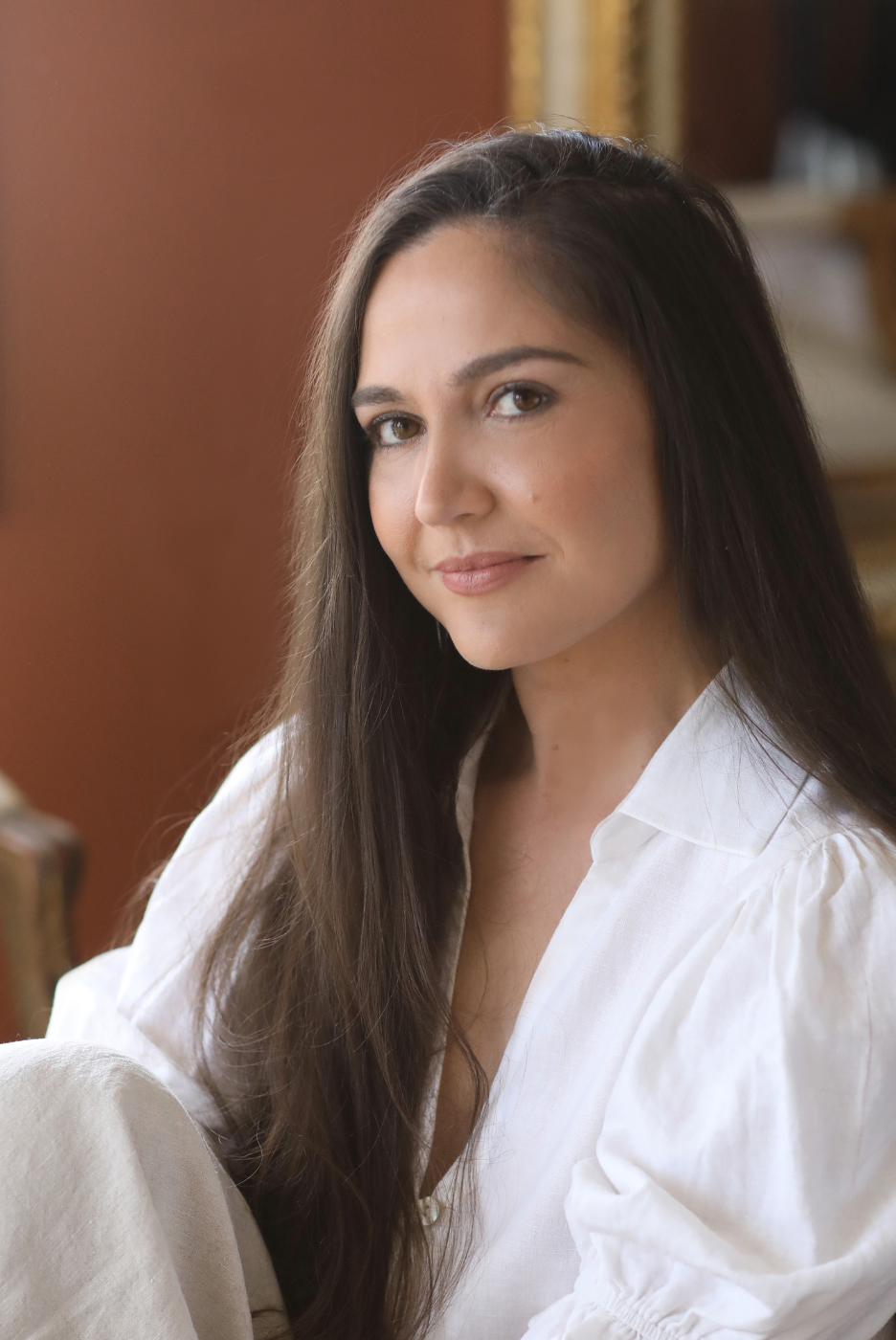
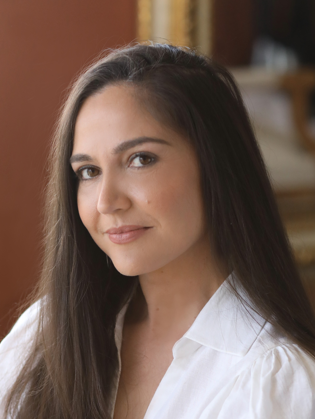

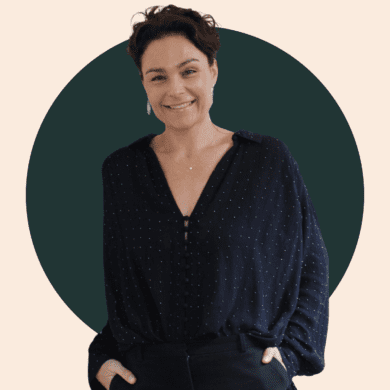
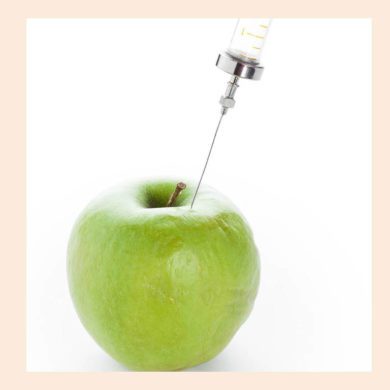
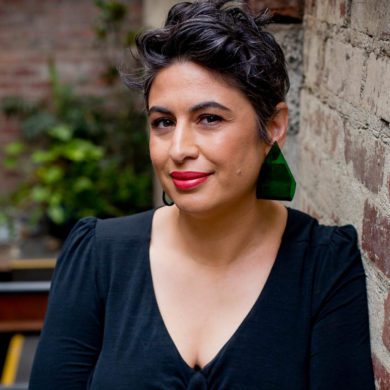
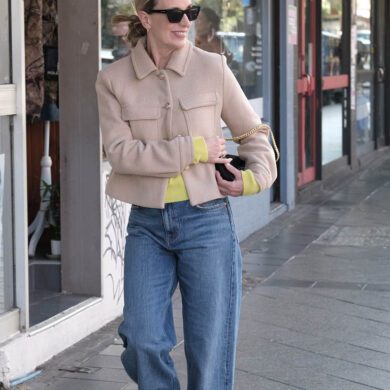
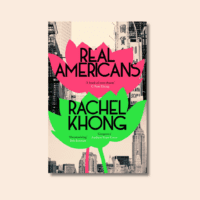

No Comments